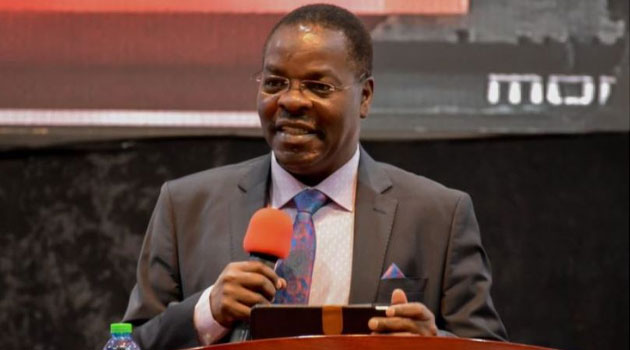
Inside Oginde’s stinging prayer against graft lords in Ruto’s presence » Capital News
NAIROBI, Kenya, Jul 31 – Ethics and Anti-Corruption Commission (EACC) Chairperson David Oginde delivered a fiery rebuke to corrupt leaders on Wednesday as he delivered a prayer during the signing of the Conflict of Interest Bill into law at State House, Nairobi.
Oginde, a former Presiding Bishop of Christ Is The Answer Ministries (CITAM), seized the solemn moment to draw a sharp biblical parallel to Judas Iscariot’s betrayal.
“When Judas betrayed the trust that had been given to him by his master and sold him for 30 pieces of silver, it did not benefit him,” Oginde said.
“Instead, the land that he bought with that money, that is where his body committed suicide.”
Oginde expanded his rebuke beyond individual acts, decrying the systemic collusion that enables graft.
“Today as we gather here, I know there are individuals, there may be couples, there may be families who conspire to defraud our country of the limited resources that we have,” he warned.
‘Force of heaven’
He invoked earthly and divine justice against those seeking to undermine the new law in the unprecedented prayer at the state ceremony.
“I pray that as our president appends his signature on this law, that signature will be from heaven and with the force of heaven. So that those people who may [be] tempted to circumvent it, they will face not the justice of the land only but also the justice of heaven.”
Ruto signed the Conflict of Interest Bill after declining to ratify an initial version which he accused Parliament of watering down, insisting on firm sanctions to curb conflict of interest in public service.
The prohibits public servants from granting preferential treatment and seeks to tame influence by offers of external employment.
It further disallows public servants from engaging in business contracts with government entities they work for.
The new law also bars them from acquiring interests in companies that have contracts with their reporting institutions, and taking on outside employment that conflicts with or impairs their public service responsibilities.
The law requires public officers to recuse themselves from decisions where they have a personal interest, in addition to declaring their income, assets, and liabilities, including those of their spouses and dependent children.